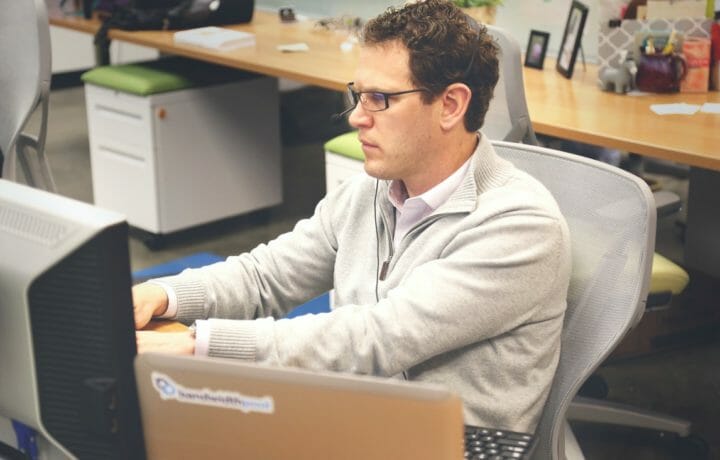Though getting your security clearance might grant you access to sensitive information, that information can’t be perused and discussed just anywhere. Some information is so sensitive, it can’t be discussed outside a SCIF, a Sensitive Compartmented Information Facility.
What is a SCIF?
SCIFs are rooms or buildings specially designed and built with highly technical counter-measures designed to prevent eavesdropping. They are built to specific acoustic specifications, typically designed without windows, and have a litany of other measures built into their access and electronics. Some even have their very own tinfoil hats. Okay, not really, but some SCIFS have metallic radiant barrier foil to shield radio frequencies, which is basically the same thing.
If you want to access, store, or discuss classified information, you’ll need to be in one of these safe rooms to do so.
Leave your tech at home…
The purpose of a SCIF is to keep information safe, which means that you can’t bring any information in – or out of – the SCIF. Several items you’re used to carrying all the time have to be left at home or in your car.
Some items are prohibited for obvious reasons. You could use your cell phone to record conversations or snap pictures of documents, making it an obvious candidate for the prohibited list. But you also can’t bring your smart watch, a thumb drive, or your laptop. Anything that is bluetooth enabled needs to stay away too.
You might be a little more difficult to get ahold of than you’re used to, but it’s just one of the ways a security clearance might change your life.
…and leave your work at work
The bright side of working in a SCIF is that your work has to stay there, too. This gets you off the hook for working from home in most cases. While being able to finish work in the evenings or on the weekends might have some appeal, keeping a firm boundary between work and home life can have its perks as well.
COVID-19, SCIFs, and the future of information security
COVID-19 concerns have led to more discussions about what workers might be able to do outside of SCIFs. Some cleared professionals don’t require SCIF-only information to do all of their job, so they may be able to work remotely or at another location when they don’t need to access sensitive information. Virus concerns also have many SCIFs taking steps to minimize virus exposure. Shift schedules, extra cleaning measures, and letting employees work remotely part of the time are just a few of the ways COVID-19 has changed how employees who use SCIFs work.
Life in a SCIF might take some getting used to, but it’s all part of the job.




